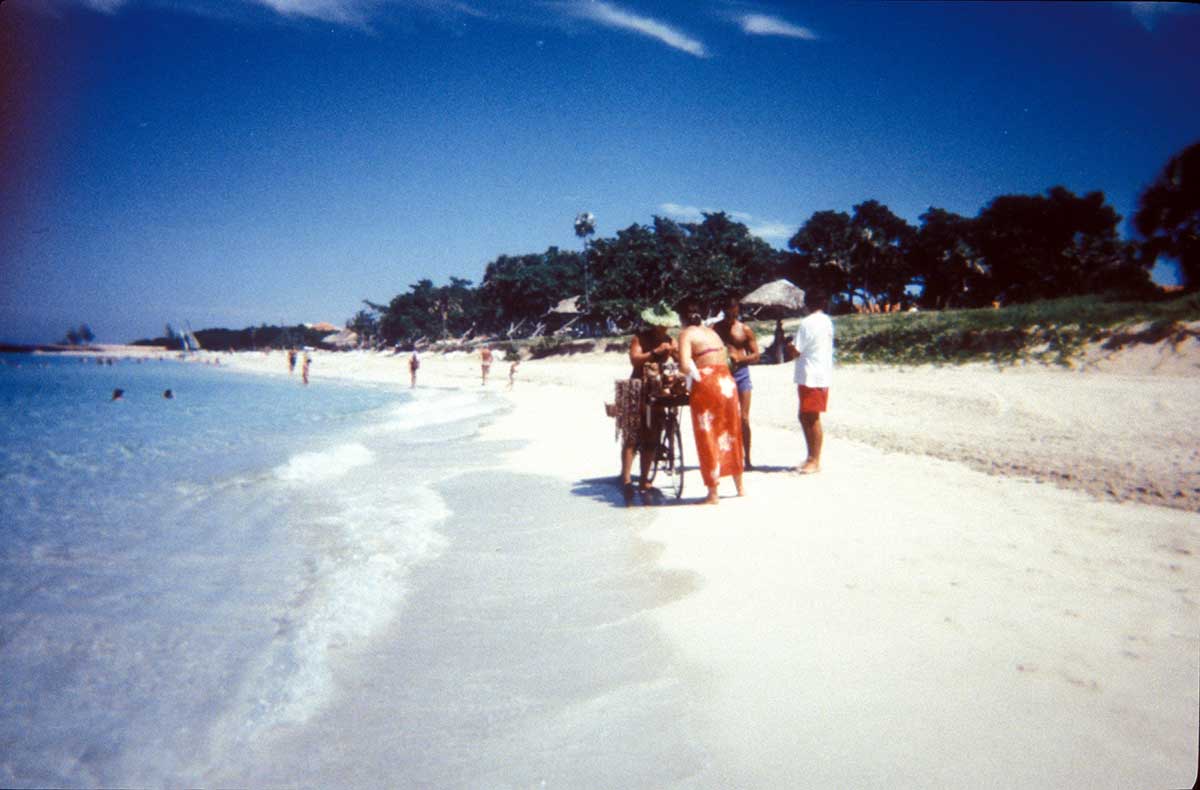Between 2007 and 2018, Raúl Castro temporarily expanded the number of categories and marketing reach of licenses for Cubans to operate small businesses such as the home manufacture of artisanal goods for tourists and their sale by middle men. However, from 1991 until then, the Castro government led by Fidel markedly restricted artisans from selling handicrafts just as they banned Cuban nationals from using beaches directly in front of foreigners-only, government-owned beach resorts—despite the fact that one of the first acts of the revolutionary government of 1959 was to make all beaches in Cuba public, open to all. Nonetheless, Cuban entrepreneurs like the one shown selling his crafts to foreigners in this picture found ingenious means for skirting the law: they simply displayed items such as shell and seed necklaces and rag dolls from the handle bars of their bikes while riding nonchalantly by foreign tourists on the beach. Inevitably, one would call out, the “biker” would stop, and after s/he explained the dangers of getting caught, the tourist would buy as many goods as possible, taking advantage of the better quality and lower prices of handicrafts compared to those sold in government-owned tourist shops.
